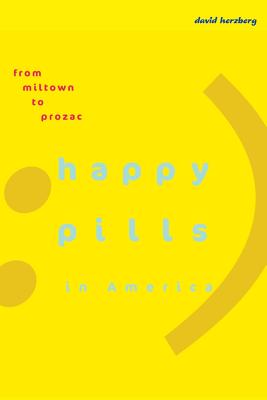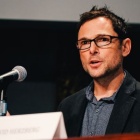

 Johns Hopkins University Press
Johns Hopkins University Press
Happy Pills in America: From Miltown to Prozac


Key Metrics
- David Herzberg
- Johns Hopkins University Press
- Paperback
- 9780801898143
- 8.9 X 5.9 X 0.9 inches
- 0.88 pounds
- Medical > History
- English
 Secure Transaction
Secure TransactionBook Description
Valium. Paxil. Prozac. Prescribed by the millions each year, these medications have been hailed as wonder drugs and vilified as numbing and addictive crutches. Where did this blockbuster drug phenomenon come from? What factors led to the mass acceptance of tranquilizers and antidepressants? And how has their widespread use affected American culture?
David Herzberg addresses these questions by tracing the rise of psychiatric medicines, from Miltown in the 1950s to Valium in the 1970s to Prozac in the 1990s. The result is more than a story of doctors and patients. From bare-knuckled marketing campaigns to political activism by feminists and antidrug warriors, the fate of psychopharmacology has been intimately wrapped up in the broader currents of modern American history. Beginning with the emergence of a medical marketplace for psychoactive drugs in the postwar consumer culture, Herzberg traces how happy pills became embroiled in Cold War gender battles and the explosive politics of the war against drugs--and how feminists brought the two issues together in a dramatic campaign against Valium addiction in the 1970s. A final look at antidepressants shows that even the Prozac phenomenon owed as much to commerce and culture as to scientific wizardry.
With a barrage of ask your doctor about advertisements competing for attention with shocking news of drug company malfeasance, Happy Pills is an invaluable look at how the commercialization of medicine has transformed American culture since the end of World War II.
Author Bio
I am a historian of drugs whose research focuses on the legal kind—psychoactive pharmaceuticals. I explore the nature and trajectory of drug commerce, drug use, and drug policy in American racial capitalism.
My work has appeared in numerous scholarly and medical journals, in popular media, and in two books: White Market Drugs: Big Pharma and the Hidden History of Addiction in America (University of Chicago Press, 2020) and Happy Pills in America: From Miltown to Prozac (Johns Hopkins University Press, 2009). I am also co-editor of Social History of Alcohol and Drugs: An Interdisciplinary Journal, the official organ of the Alcohol and Drug History Society.
Research Projects
I am finishing work on two projects: a book co-authored with Helena Hansen and Jules Netherland on how the politics of whiteness has shaped the history of opioids, opioid addiction, and drug policy in the U.S.; and a volume co-edited with Nils Kessel and Joseph Gabriel exploring alternatives to the drug-medicine divide as a frame for the history of psychoactive substances. I am also beginning research for a new project on the 1971 Convention on Psychotropic Substances, which broadened international controls to cover synthetic drugs such as amphetamine, barbiturates, tranquilizers, and LSD.
The Convention offers an opportunity to explore how the quest for drug control has also, of necessity, been a quest to define medicine and therapy, framed and influenced but never entirely defined by powerful corporations and the political hierarchies of race, gender, class, and nation.
Education
PhD, University of Wisconsin-Madison, 2005
MA, University of Wisconsin-Madison, 1997
BA, Wesleyan University, 1993
Source: University of Buffalo
Videos






Community reviews
Write a ReviewNo Community reviews